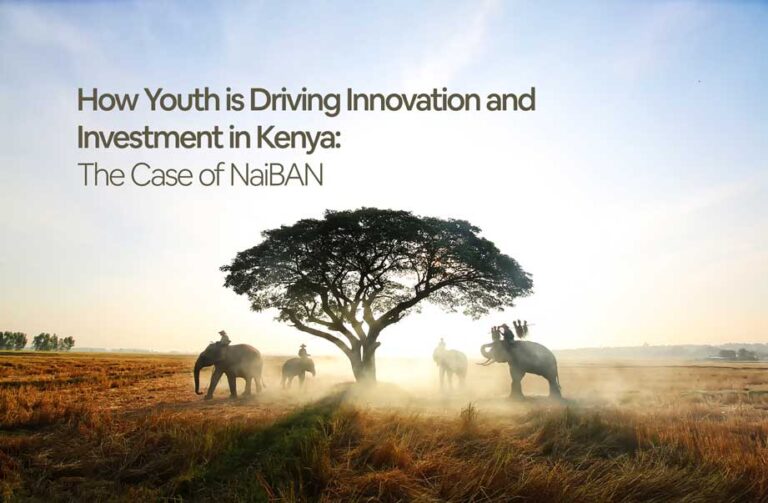Importance of startup financing and its impact on Kenya’s entrepreneurial ecosystem
Kenya’s startup scene is not merely a collection of ambitious ventures; it’s a testament to the transformative power of financing in fostering economic growth and igniting societal change.
In recent years, Kenya has emerged as a beacon of innovation in Africa, with its startup ecosystem experiencing exponential growth. From fintech disruptors revolutionizing digital payments to agritech pioneers redefining agricultural practices, Kenyan startups are at the forefront of innovation across various sectors. However, behind every success story lies a crucial factor: financing.
Startup financing serves as the lifeblood of Kenya’s entrepreneurial ecosystem, fueling the dreams and aspirations of visionaries determined to make a difference. Whether through venture capital, angel investors, or crowdfunding platforms, access to capital enables startups to turn ideas into reality, scale their operations, and compete on a global stage.
The impact of startup financing reverberates far beyond individual companies; it ripples throughout the economy, driving job creation, fostering technological advancement, and stimulating overall economic growth. In Kenya, where unemployment rates remain a pressing concern, startups serve as engines of job creation, offering opportunities for skilled and unskilled workers alike.
Moreover, the innovative solutions developed by Kenyan startups address pressing societal challenges, from financial inclusion to healthcare accessibility, thereby enhancing the quality of life for millions. As these startups flourish, they attract investment, talent, and attention, positioning Kenya as a hub of innovation and entrepreneurship on the global stage.
Yet, amidst the success stories lies a stark reality: the need for continued support and investment in Kenya’s startup ecosystem. While progress has been remarkable, challenges such as limited access to financing, regulatory hurdles, and infrastructure gaps persist, threatening to stifle the potential of budding entrepreneurs.
As Kenya charts its course towards economic prosperity, the role of startup financing cannot be overstated. It is not merely about funding businesses; it is about empowering dreams, driving innovation, and shaping the future of a nation. In the journey towards unlocking Kenya’s full potential, startup financing is not just an investment—it’s a catalyst for transformation.

Challenges facing startups in Kenya
Market Volatility
Startups operate in dynamic market environments where demand, competition, and industry trends can rapidly change. This volatility can make it difficult for investors to assess the long-term viability and potential success of a startup, leading to hesitancy in providing funding.
Founder Inexperience
Many startups are founded by first-time entrepreneurs who may lack experience in navigating the complexities of fundraising. This inexperience can hinder their ability to effectively pitch their business idea, negotiate terms with investors, and manage the financial aspects of their startup.
Geographical Limitations
In certain regions, access to funding may be limited due to geographical constraints. Startups outside of major entrepreneurial hubs may struggle to attract investment attention, leading to disparities in funding opportunities based on location.
Sector-specific Challenges
Different industries and sectors may face unique challenges when it comes to funding. For example, deep-tech startups may struggle to secure funding due to the longer development timelines and higher technical risks associated with their products or services.
Network Limitations
Access to networks and connections within the investor community can significantly impact a startup’s ability to secure funding. Startups with limited networks may find it challenging to connect with potential investors who are willing to take a chance on their venture.
Valuation Issues
Determining the valuation of a startup, especially in the early stages, can be subjective and challenging. Discrepancies in valuation expectations between founders and investors can lead to difficulties in reaching a mutually beneficial agreement and securing funding.
Economic Downturns
During periods of economic uncertainty or downturns, investor confidence may wane, leading to a decrease in available funding for startups. Tightened investment budgets and risk aversion during such times can exacerbate funding challenges for early-stage ventures.
Funding sources available to Kenyan startups
Angel Investors
Angel investors are individuals who provide capital to startups in exchange for equity ownership. In Kenya, there is a growing community of angel investors who are interested in supporting early-stage ventures. These investors often bring not only financial resources but also valuable expertise, mentorship, and networking opportunities.
Venture Capital (VC) Firms
Venture capital firms invest in startups with high growth potential in exchange for equity stakes. In Kenya, there are several VC firms focused on supporting technology-driven startups across various sectors such as fintech, healthtech, and agritech. VC funding can provide startups with the capital needed to scale their operations and enter new markets.
Government Grants and Programs
The Kenyan government, as well as various international organizations and development agencies, offer grants and funding programs to support entrepreneurship and innovation. These grants may be targeted towards specific sectors or initiatives aimed at addressing societal challenges. Examples include the Kenya Innovation Agency (KENIA), which provides grants to innovative startups, and the Kenya Climate Innovation Center (KCIC), which supports green businesses.
Corporate Partnerships and Accelerators
Corporates often collaborate with startups through partnerships, accelerator programs, or corporate venture capital arms. These partnerships can provide startups with access to resources, mentorship, and potential customers or distribution channels. Examples include Safaricom’s Spark Venture Fund and the Coca-Cola Africa Foundation’s Startup Accelerator Program.
Bank Loans and Financial Institutions
While traditional bank loans may be more difficult for startups to access due to their risk profile and lack of collateral, some financial institutions offer specialized financing products tailored to startups. Additionally, initiatives such as the Kenya Bankers Association (KBA) FinTech Innovation Hub aim to bridge the gap between banks and fintech startups.
Crowdfunding Platforms
Crowdfunding platforms allow startups to raise capital from a large number of individuals or investors online. Platforms like M-Changa and M-Pesa’s Fuliza have gained popularity in Kenya, enabling startups to access funding from a diverse pool of supporters.
Impact Investors and Social Venture Capital
Impact investors and social venture capital firms focus on investing in startups that generate positive social or environmental impact alongside financial returns. These investors may be particularly interested in startups addressing issues such as healthcare, education, and sustainable development.
Advice for entrepreneurs seeking funding
- Research: research on funding options and their specific themes (e.g., green energy, education, technology).
- Application Process: understand the application guidelines before applying for grants
- Network with investors for better opportunity. Reach out to Pilotic team if you are in the process of fundraising.


